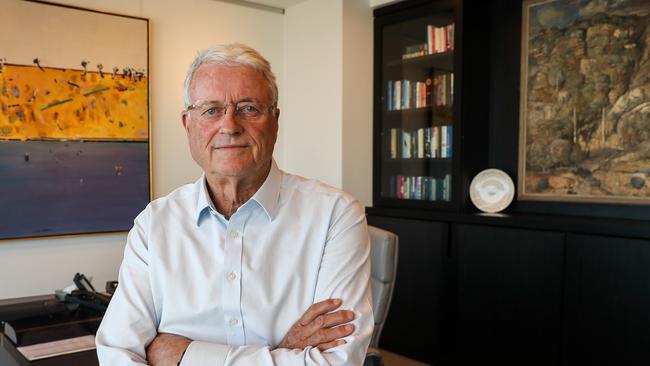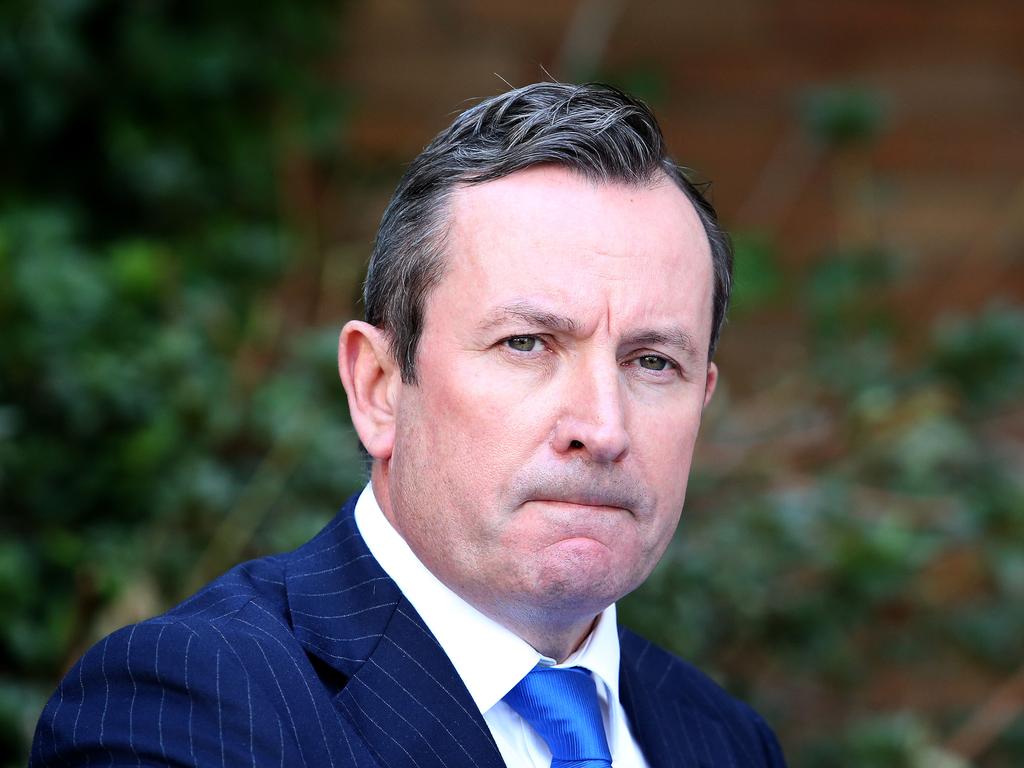China must retain soft power and keep the world on side, says Michael Chaney

Last week the G7 countries refreshed their agenda and posture towards the Middle Kingdom. It was also the week when 1700 oil and gas folk gathered in Perth for APPEA 2021, a conference dominated by the carbon emissions problem.
Speaking at APPEA, West Australian Premier Mark McGowan attacked the federal government for its hard line on China, a stance that threatens the West’s lucrative resources trade.
In politics, China has become a minefield of sensitivities. “Actually Mark McGowan has said we do have to stand up for our beliefs and rights as a nation,” Mr Chaney, a former chairman of Woodside, pointed out.
“On the other hand, China is our major trading partner – not only in exports; a vast amount of our imports come from China and it is a really fine balance.
“I sympathise with the federal government’s approach actually. They have correctly said we have certain beliefs and standards about how you conduct yourself and we should stick to those.”
On occasion, Mr Chaney feels the Morrison government has overplayed its hand on China, particularly leading the charge for an international Covid-19 inquiry. “Australia is a minnow in the world and it may have been, with hindsight, better to have gone third.”
Yet he does not see Australia’s work to shore up the G7 as leading the pack to goad the China bear further.
“The Chinese are well aware I’m sure that other countries, the US, Canada and the UK, have been expressing real concerns over the last year about trade restrictions. I don’t think it will come as any surprise to the Chinese that the G7 have made these sort of declarations.”
The effect on China of the G7’s new posture is a more open question.
“One thing that has occurred to me is that China is at risk in the medium term if it lacks soft power. It’s OK to say we are big and you rely on us but eventually, as you do in business, you need people to be on your side if you are trading with them. And in the last couple of weeks we have seen views expressed by president Xi that we need to be seen as friends and people need to have a favourable view of us in other countries. One would hope that is a realisation that China needs to be part of a world community and it needs to be trading fairly and it needs the support of other nationals. That’s the optimistic view.”
Michael Chaney is chairman of Wesfarmers (owner of Bunnings, Officeworks and Target) and a former chairman of both NAB and Woodside, as well as a former chancellor of the University of Western Australia.
We catch up in Wesfarmers’ head office on St George’s Terrace in Perth on a day when the company share price hits a new high of $57.83.
The chairman says it’s really pleasing to see how the management team that CEO Rob Scott has put together is performing.
This year, Michael Chaney is taking on yet another big and challenging role as chairman of Northern Star Resources, the ambitious $13bn Super Pit gold miner created from the merger of Northern Star with Saracen Minerals.
There are plans to increase production to two million ounces a year.
“I think most people would have missed it in Sydney and Melbourne,” he said of the appointment. “I’m a geologist. It is a very good company, it’s got some great gold assets, a really impressive track record. I just feel it’s got a terrific future.
“I studied hard rock geology at university but then went into oil and gas. I haven’t actually been underground at Kalgoorlie for 53 years so I look forward to that.”
We move to the threat to the oil and gas sector with increasing pressure from the International Energy Agency’s plan for no new oil or gas field development and activist investors that now have three seats on the board of ExxonMobil.
European giants like BP and Shell are shifting to be broad energy businesses while still producing oil and gas but US giants like ExxonMobil and Chevron are sticking with their existing fossil fuel model.
“Those companies will have a future for decades,” Mr Chaney said. “The IEA report is interesting. It tends to be reported as ‘the IEA says there should be no new oil and gas field approvals from this year.’ They don’t say that. It is not a recommendation, it is a modelling observation and I think it is out there for discussion.
“There are going to be approvals this year and next year and for the years going forward, because you can’t just change to renewables overnight.”
Mr Chaney says hydrogen-based transition fuels, and gas in particular, will be needed for some time in transport and electricity generation, not to mention the role oil has in manufacturing.
“Now if you’d asked me two years ago for how long, my view would have been for longer than it is today, because these things build up a head of steam and the developments at Exxon and Shell and in the courts, [and in NSW] are quite sobering,” he says.
The two technical solutions the world is pinning its hopes on for transition, hydrogen and carbon capture and storage, are a long way from delivering. “There is a lot of talk about it. People in politics talk it up as a potential, and some people in business as well, but hydrogen has yet to be proved to be commercial at scale,” he said.
“And we’ve seen challenges around CCS. You cannot just take CO2 that is produced in a well and take it half way across the country to be stored in an empty reservoir. There are real practical issues about doing it on a grand scale.”
In the meantime, capital flight from the oil and gas sector is a serious issue. “If banks are going to refuse to lend to hydrocarbon projects, they won’t get up. There will be some banks who do. Perversely, the real winners out of this will be the existing producers and the Middle East, where there are huge reserves that they basically hold back. They may well make hay with the price rising and having a much higher market share of production.”
Chaney graduated as a young geologist in the 1960s, and it was the collapse of the mining boom that drove him into oil and gas and the extraordinary early finds on the North West Shelf. “When you went out to the reef and drilled and you got a vast section of net pay, you tended to think this is normal. It turned out it was very unusual to get those fabulous gas fields.”
The offer to chair Northern Star brings him back to the old stomping ground as he puts it. “It’s two companies combined into one and I like the style, the whole approach of the way they run the companies: the ethics, the governance arrangements. They started talking to me about needing a new chairman and eventually we decided it would be mutually beneficial.”
Mr Chaney’s deep board experience and impeccable reputation in the investment market will be put to good use at Northern Star, which received a first strike against its remuneration report last year.
“There are challenges obviously if you put two smaller companies together because you’ve got to benchmark going forward against companies of similar size. And so they have been designing a remuneration structure that suits the company going forward and we will put that to shareholders.”
With the resources sector pumping, Western Australia is first in line to see a tightening of the labour market and concerns over skills from border closures. What is under-reported, says Chaney, is the effect of reduced immigration.
“We are going to pay a price for that down the track. It may mean that wages growth increases more than people expect and that is a good thing for people on low wages but it might mean that interest rates go up earlier than people expect. Because of our birthrate, we have been relying on immigration for GDP growth for decades and without that growth, you might find a couple of years down the track economic activity is very subdued here as a result of those two factors,” he said.
Chaney says that in the past six months brickies have been getting $3 a brick instead of $1.20. “It’s just rocketed in the last six months. There is shortage of all products. If you want to buy a European washing machine you wait five months and it’s the same with plumping fittings, electrical fittings, timber, trusses – you name it.”
This trend may peak later this year, but Chaney believes that until a very large part of the population is vaccinated around the world, border restrictions in Australia will remain. The alternative, he argues, risks a new wave of health and economic carnage.
“A shutdown in Melbourne costs tens of millions of dollars over a week or two and you can magnify by a lot if you look at a whole country. If the UK has a wave and everyone is restricted again, in those circumstances Australia sits here with less than 1000 deaths in total now and the economy growing better than people thought. I think the strategy overall has been fine. At some stage the borders have to open up.”




Business leader Michael Chaney supports the federal government’s tough stance on China and says the Asian giant is at risk if it loses soft power. In a wide-ranging interview with The Weekend Australian, he also declared that the big oil and gas companies will be operating for decades to come.